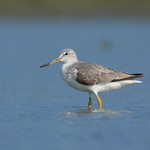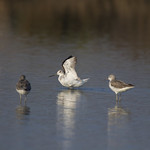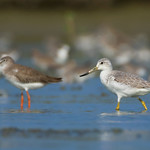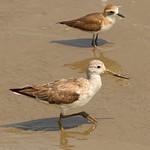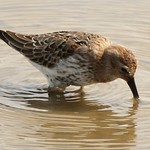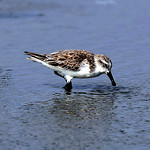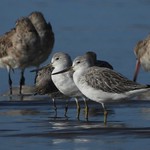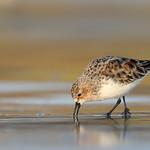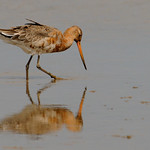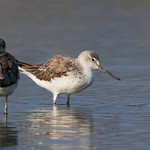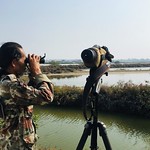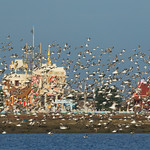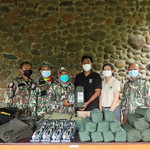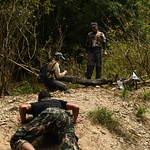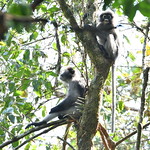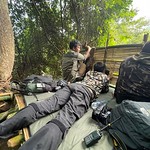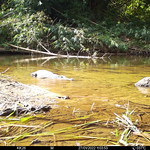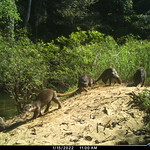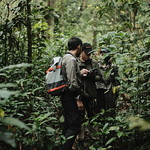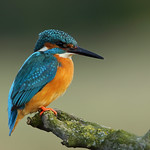Scroll Percentage: 0%
Large Projects in Thailand 2022
From stream to shore: Conservation of riverine species and wintering shorebirds
Thailand Conservation Facts
Thailand ranks the 20th among countries globally in terms of the rate of biodiversity, but as many as 470 species around the country are facing the threat of extinction in the wild. Almost 20% of its land area and five percent of its total marine coastal area are protected. These protected areas are critically important to preserving the ecosystem and genetic medley of this biodiversity rich country. According to the IUCN Red list, Thailand is home to 671 threatened species.
Large Projects in Thailand
There are currently two large projects underway in Thailand, which are locally implemented, managed by The Mohamed bin Zayed Species Conservation Fund and sponsored by Mubadala Investment Corporation and its local asset, Mubadala Petroleum. On the coast, securing the wintering grounds of the endangered Spotted greenshank is a project implemented by the Bird Conservation Society of Thailand. Along the Phetchaburi River in Kaeng Krachan National Park, WCS is helping to conserve Thailand’s globally threatened Smooth-coated otter, Asian small-clawed otter and the Siamese Crocodile.
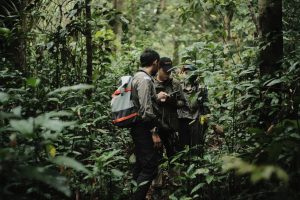
Thailand Project Management Partners
The Fund manages both projects in cooperation with our local partners. We work with
The Bird Conservation Society of Thailand (BCST) as our partner in saving the Spotted Greenshank. Established in 1986, BCST aims to raise awareness of the importance of birds, their habitats, and the natural environment and to support actions towards achieving sustainable development. Wildlife Conservation Society (WCS) Thailand is our partner in protecting Thailand’s endangered otters and Siamese Crocodile. WCS Thailand was established in 1980 with the objective of saving wildlife through science, conservation action, education, and inspiring people to value nature.
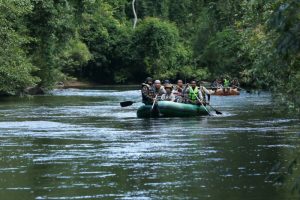
Both projects are supported by Mubadala Investment Corporation and its in-country asset, Mubadala Petroleum, who is a leading international, upstream oil and gas exploration and production company. They manage assets and operations spanning 10 countries globally, with a presence Southeast Asia, the Middle East and North Africa and Russia.
Project One: Saving the Spotted greenshank
Up to a quarter of the Spotted green shank population winters in the tropical conditions of Southeast Asia. However, Thailand faces many threats from human impact but also coastal erosion. Land use change and urban expansion are the most serious threats. Salt pans are generally declining due to the fluctuating price of sea salt and rising labour wages. Converting them to aquaculture ponds, industrial zone or urban area can be observed along the coast of the Inner Gulf. The loss of salt pans will signal the end of the high tide roosting sites of the Spotted greenshank. This project aims to secure the wintering grounds and will deliver field surveys and monitor the migrating population.
Progress in 2022 and next steps
Between October 2022 – January 2023, the research team completed a third of the scheduled surveys and covered all 24 coastal provinces. The highest number of Green shank individuals recorded were 249 in Petcha Buri, particularly in the Pak Thale- Lam PakBa site.
To improve the wintering habitats of the greenshank and other water birds, the BCST collaborated with the Department of Marine Coastal Resources and the local communities to maintain the water levels in the ponds in Pak Thale.
A 4km bamboo fence along the coast of Pak Thale, was fortified by planting mangroves along the base and each salt pan landscaped to form soil dunes. With the help of the local community, the BCST team also maintained the sea water levels in the ponds up to 1m.
To raise awareness amongst the youth, the research team initiated the “Young Shorebird Ambassador” program to teach upcoming conservationists and for them to ultimately create a short documentary on shorebirds with the help of media experts.
Community engagement also extended to 8 local community groups from the South, Each and Central regions of Thailand. Apart from training them in greenshank monitoring and recording, they are also encouraged to identify ecotourism opportunities for engagement.
From this survey, Ban Hua Hin (La-ngu, Satun province) is proven to be a new significant wintering site for Spotted Greenshanks in Thailand
Bird Conservation Society of Thailand
Project Two: Protecting the biodiversity of Thailand’s rivers
The river basin of the Kaeng Krachan National Park (KKNP) is relatively intact and protected but facing habitat degradation from human disturbance, particularly fishing and land conversion, which impacts the targeted species and their prey.
This project will focus on the Kaeng Krachan National Park (KKNP) and target three indicator species namely; smooth-coated otter, Asian small-clawed otter, and Siamese crocodile. It is expected to deliver solid scientific information about the species and their habitats and build capacities for law enforcement and long-term conservation monitoring of the species.
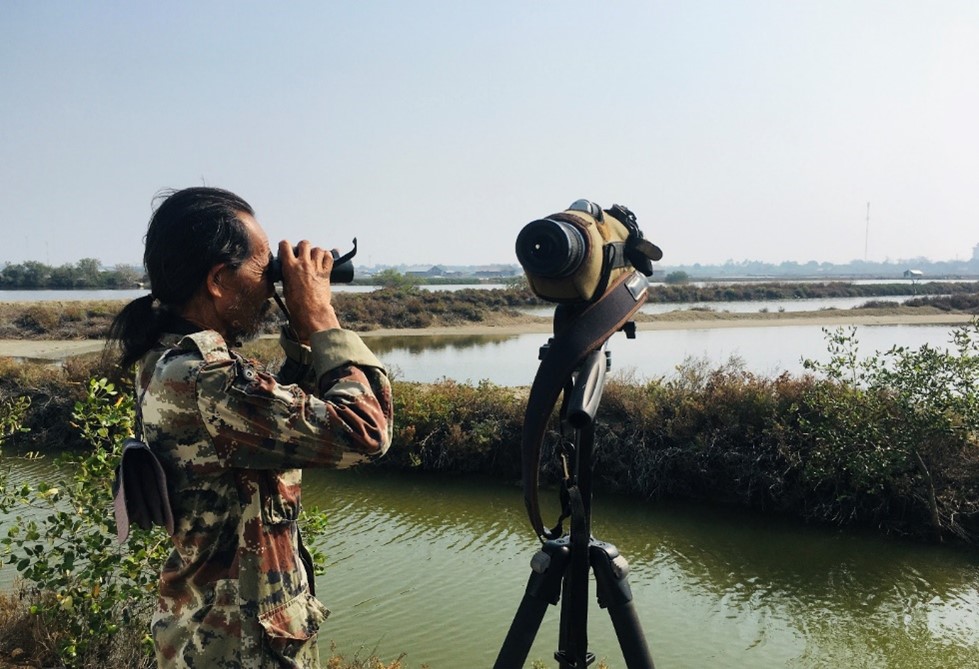
Progress in 2022 and next steps
WCS Thailand continued to work closely with Kaeng Krachan National Park (KKNP) Rangers using the SMART patrol system to reduce poaching threats in the project hub in the upper Petchburi River Basin.
Throughout the reporting period, 5 patrols managed to cover 32% of the Petchburi River (614 km2). Along the 1620km stretch covered (on average 245km/month), the rangers encountered and destroyed 16 poacher camps, one poacher hide, and seized two guns. They also conducted 3 surveys which included camera trapping, screening walk-through survey (reconnaissance/ recce survey) and boat survey.
During the 10 boat surveys, seven sightings of Spectacled langurs (Trachypithicus obscurus, an endangered species), a prime target for poachers as well as 15 species of birds were recorded.
15 camera traps set up along the river captured 181 incidents of smooth-coated otters and one of a Siamese crocodile.
35 Rangers took part in a SMART patrol refresher course which was led by WCS trainers and covered topics such as data collection, map reading, and basic use of GPS.
Three master students are still busy with their theses, but these should be completed during the next reporting period.
Photos submitted by the Wildlife Conservation Society Thailand
Field Reports 2021
Otters capture on video
Crocodile nesting site uncovers 16 eggs
Supporting KKNP SMART patrol teams
All Thailands provinces surveyed
More than 1000 recorded Green shank sightings
Establishing local conservation working groups
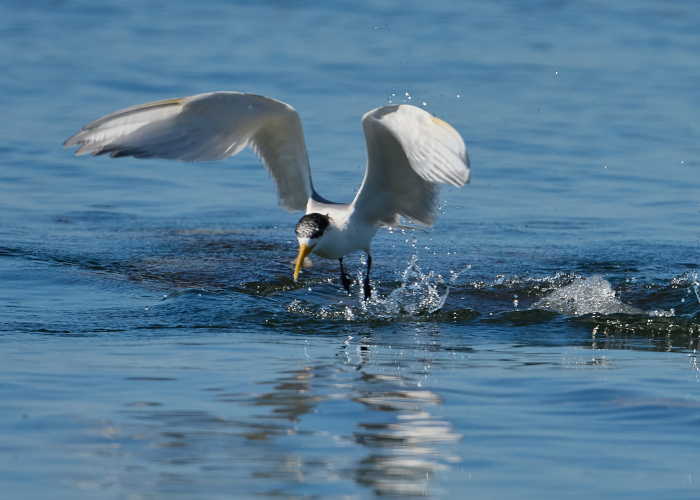
Greater Crested Tern (Thailand)© Bird Conservation Society of Thailand
